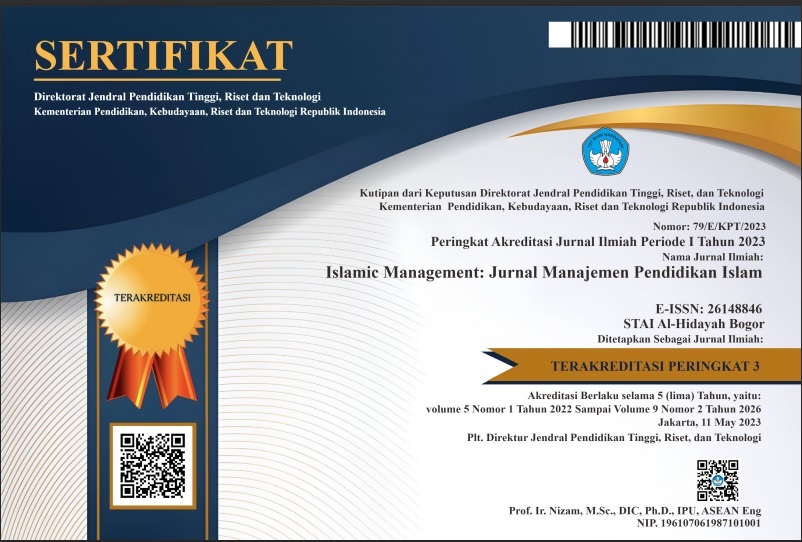THE EFFECT OF PROBLEM SOLVING-BASED PAI LEARNING ON STUDENTS' CRITICAL THINKING SKILLS
DOI:
https://doi.org/10.30868/im.v8i01.7788Keywords:
PAI Learning, Problem Solving, Critical Thinking SkillsAbstract
This study aims to analyze the effect of problem solving-based Islamic Religious Education (PAI) learning on students' critical thinking skills. This research method uses a quantitative approach with a pseudo-experimental design. The research sample consisted of 60 students divided into control and experimental groups. Data were obtained through critical thinking skills test and analyzed using t-test. The results showed that problem solving-based learning significantly improved students' critical thinking skills compared to conventional learning. The implication of this study emphasizes the importance of implementing innovative learning strategies in PAI curriculum to develop 21st century skills in students.
References
Brookhart, S. M. (2010). How to Assess Higher-Order Thinking Skills in Your Classroom. ASCD.
Facione, P. A. (2011). Critical Thinking: What It is and Why It Counts. Insight Assessment.
Johnson, D. W., & Johnson, R. T. (2009). Cooperation and Competition: Theory and Research. Interaction Book Company.
Sugiyono. (2016). Metode Penelitian Kuantitatif, Kualitatif, dan R&D. Alfabeta.
Trianto. (2012). Model Pembelajaran Terpadu. Bumi Aksara.
Downloads
Published
How to Cite
Issue
Section
Citation Check
License
Copyright (c) 2025 Hany Safitri, Dyah Nawangsari , Mustajab Mustajab

This work is licensed under a Creative Commons Attribution-ShareAlike 4.0 International License.
Authors who publish with this journal agree to the following terms:
- Authors retain copyright and grant the journal right of first publication with the work simultaneously licensed under a Creative Commons Attribution License that allows others to share the work with an acknowledgment of the work's authorship and initial publication in this journal.
- Authors are able to enter into separate, additional contractual arrangements for the non-exclusive distribution of the journal's published version of the work (e.g., post it to an institutional repository or publish it in a book), with an acknowledgment of its initial publication in this journal.
- Authors are permitted and encouraged to post their work online (e.g., in institutional repositories or on their website) prior to and during the submission process, as it can lead to productive exchanges, as well as earlier and greater citation of published work (See The Effect of Open Access).






